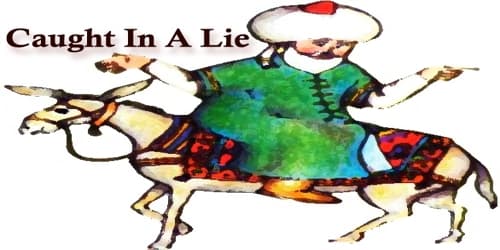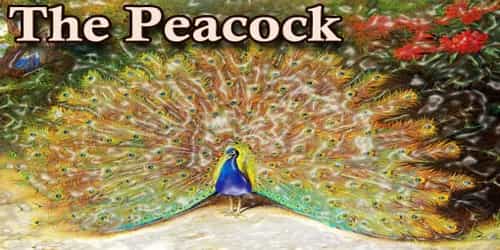Brown as a coffee-berry, rugged, pistoled, spurred, wary, indefeasible, I saw my old friend, Deputy-Marshal Buck Caperton, stumble, with jingling rowels, into a chair in the marshal’s outer office.
And because the court-house was almost deserted at that hour, and because Buck would sometimes relate to me things that were out of print, I followed him in and tricked him in to talk through knowledge of a weakness he had. For, cigarettes rolled with sweet corn husk were as honey to Buck’s palate; and though he could finger the trigger of a forty-five with skill and suddenness, he never could learn to roll a cigarette.
It was through no fault of mine (for I rolled the cigarettes tight and smooth), but the upshot of some whim of his own, that instead of to an Odyssey of the chaparral, I listened to a dissertation upon matrimony! This from Buck Caperton! But I maintain that the cigarettes were impeccable and crave absolution for myself.
“We just brought in Jim and Bud Granberry,” said Buck. “Train robbing, you know. Held up the Aransas Pass last month. We caught them in the Twenty-Mile pear flat, south of the Nueces.”
“Have much trouble corralling them?” I asked, for here was the meat that my hunger for epics craved.
“Some,” said Buck; and then, during a little pause, his thoughts stampeded off the trail. “It’s kind of queer about women,” he went on, “and the place they’re supposed to occupy in botany. If I was asked to classify them I’d say they was a human locoweed. Ever see a bronc that had been chewing loco? Ride him up to a puddle of water two feet wide, and he’ll give a snort and fall back on you. It looks as big as the Mississippi River to him. Next trip he’d walk into a canyon a thousand feet deep thinking it was a prairie-dog hole. Same way with a married man.”
“I was thinking of Perry Roun-tree that used to be my side kicker before he committed matrimony. In the days me and Perry hated in disturbances of any kind. We roamed around considerable; stirring up the echoes and making them attend to business. Why, when me and Perry wanted to have some fun in a town it was a picnic for the census takers. They just counted the marshal’s posse that it took to subdue us, and there was your population. But then there came along this Mariana Goodnight girl and looked at Perry sideways, and he was all bridle-wise and saddle-broke before you could skin a yearling.”
“I wasn’t even asked to the wedding. I reckon the bride had my pedigree and the front elevation of my habits all mapped out, and she decided that Perry would trot better in double harness without any unconverted mustang like Buck Caperton whickering around on the matrimonial range. So it was six months before I saw Perry again.”
“One day I was passing on the edge of town, and I see something like a man in a little yard by a little house with a sprinkling-pot squirting water on a rose-bush. Seemed to me, I’d seen something like it before, and I stopped at the gate, trying to figure out its brands. It was not Perry Roun-tree, but it was the kind of a curdled jellyfish matrimony had made out of him.
“Homicide was what that Mariana had perpetrated. He was looking well enough, but he had on a white collar and shoes, and you could tell in a minute that he’d speak polite and pay taxes and stick his little finger out while drinking, just like a sheepman or a citizen. Great skyrockets! But I hated to see Perry all corrupted and Willieized like that.”
He came out to the gate, and shook hands; and I says, with scorn, and speaking like a paroquet with the pip: “Beg pardon Mr. Rountree, I believe. Seems to me I sagatiated in your associations once, if I am not mistaken.”
“Oh, go to the devil, Buck,” says Perry, polite, as I was afraid he’d be.
“Well, then,” says I, ‘you poor, contaminated adjunct of a sprinkling-pot and degraded household pet, what did you go and do it for? Look at you, all decent and unriotous, and only fit to sit on juries and mend the wood-house door. You was a man once. I have hostility for all such acts. Why don’t you go in the house and count the tidies or set the clock, and not stand out here in the atmosphere? A jack-rabbit might come along and bite you.’
“Now, Buck,” says Perry, speaking mild, and some sorrowful, ‘you don’t understand. A married man has got to be different. He feels different from a tough old cloudburst like you. It’s sinful to waste time pulling up towns just to look at their roots, and playing faro and looking upon red liquor, and such restless policies as them.’
‘There was a time,’ I says, and I expect I sighed when I mentioned it, ‘when a certain domesticated little Mary’s lamb I could name was some instructed himself in the line of pernicious sprightliness. I never expected, Perry, to see you reduced down from a full-grown pestilence to such a frivolous fraction of a man. Why, says I, ‘you’ve got a necktie on; and you speak a senseless kind of indoor drivel that reminds me of a storekeeper or a lady. You look to me like you might tote an umbrella and wear suspenders, and go home of nights.’
“The little woman,” says Perry, ‘has made some improvements, I believe. You can’t understand, Buck. I haven’t been away from the house at night since we was married.’
“We talked on a while, me and Perry, and, as sure as I live, that man interrupted me in the middle of my talk to tell me about six tomato plants he had growing in his garden. Shoved his agricultural degradation right up under my nose while I was telling him about the fun we had tarring and feathering that faro dealer at California Pete’s layout! But by and by Perry shows a flicker of sense.”
‘Buck,’ says he, ‘I’ll have to admit that it is a little dull at times. Not that I’m not perfectly happy with the little woman, but a man seems to require some excitement now and then. Now, I’ll tell you: Mariana’s gone visiting this afternoon, and she won’t be home till seven o’clock. Neither of us ever stays out a minute after that time unless we are together. Now, I’m glad you came along, Buck,’ says Perry, ‘for I’m feeling just like having one more rip-roaring razoo with you for the sake of old times. What you say to us putting in the afternoon having fun I’d like it fine,’ says Perry.
“I slapped that old captive range-rider half across his little garden.”
“Get your hat, you old dried-up alligator,’ I shouts, ‘you ain’t dead yet. You’re part human, anyhow, if you did get all bogged up in matrimony. We’ll take this town to pieces and see what makes it tick. We’ll make all kinds of profligate demands upon the science of cork pulling. You’ll grow horns yet, old muley cow,’ says I, punching Perry in the ribs, ‘if you trot around on the trail of vice with your Uncle Buck.’
‘I’ll have to be home by seven, you know,’ says Perry again.
‘Oh, yes,’ says I, winking to myself, for I knew the kind of seven o’clocks Perry Rountree got back by after he once got to passing repartee with the bartenders.
‘We goes down to the Gray Mule saloon that old adobe building by the depot.”
“Give it a name,” says I, as soon as we got one hoof on the foot rest.
“Sarsaparilla,’ says Perry.
‘You could have knocked me down with a lemon peeling.’
‘Insult me as much as you want to,’ I says to Perry, ‘but don’t startle the bartender. He may have heart-disease. Come on, now; your tongue got twisted. The tall glasses,’ I orders, ‘and the bottle in the left-hand corner of the ice-chest.’
‘Sarsaparilla,’ repeats Perry, and then his eyes get animated, and I see he’s got some great scheme in his mind he wants to emit.
‘Buck,’ says he, all interested, ‘I’ll tell you what! I want to make this a red-letter day. I’ve been keeping close at home, and I want to turn myself a-loose. We’ll have the highest old time you ever saw. We’ll go in the back room here and play checkers till half-past six.’
‘I leaned against the bar, and I says to Gotch-eared Mike,’ who was on watch:
‘For God’s sake don’t mention this. You know what Perry used to be. He’s had the fever, and the doctor says we must humour him.’
‘Give us the checker-board and the men, Mike,’ says Perry. ‘Come on, Buck, I’m just wild to have some excitement.’
‘I went in the back room with Perry. Before we closed the door,’ I says to Mike:
“Don’t ever let it straggle out from under your hat that you seen Buck Caperton fraternal with sarsaparilla or /persona grata/ with a checker-board, or I’ll make a swallow-fork in your other ear.”
“I locked the door and me and Perry played checkers. To see that poor old humiliated piece of household bric-a-brac sitting there and sniggering out loud whenever he jumped a man, and all obnoxious with animation when he got into my king row, would have made a sheep-dog sick with mortification. Him that was once satisfied only when he was pegging six boards at keno or giving the faro dealers nervous prostration to see him pushing them checkers about like Sally Louisa at a school-children’s party why, I was all smothered up with mortification.”
“And I sits there playing the black men, all sweating for fear somebody I knew would find it out. And I thinks to myself some about this marrying business, and how it seems to be the same kind of a game as that Mrs. Delilah played. She give her old man a haircut, and everybody knows what a man’s head looks like after a woman cuts his hair.”
And then when the Pharisees came around to guy him he was so shamed that he went to work and kicked the whole house down on top of the whole outfit. Them married men, thinks I, ‘lose all their spirit and instinct for riot and foolishness. They won’t drink, they won’t buck the tiger, they won’t even fight. What do they want to go and stay married for?’ I asks myself.
But Perry seems to be having hilarity in considerable quantities.
‘Buck old hoss,’ says he, ‘isn’t this just the hell-roaringest time we ever had in our lives? I don’t know when I’ve been stirred up so. You see, I’ve been sticking pretty close to home since I married, and I haven’t been on a spree in a long time.’
‘Spree!’ Yes, that’s what he called it. Playing checkers in the back room of the Gray Mule! I suppose it did seem to him a little more immoral and nearer to a prolonged debauch than standing over six tomato plants with a sprinkling-pot.
‘Every little bit Perry looks at his watch’ and says:
‘I got to be home, you know, Buck, at seven.’
‘All right,’ I’d say. ‘Romp along and move. This here excitement’s killing me. If I don’t reform some, and loosen up the strain of this checkered dissipation I won’t have a nerve left.’
‘It might have been half-past six when commotions began to go on outside in the street. We heard a yelling and a six-shootering, and a lot of galloping and manoeuvres.’
‘What’s that?’ I wonders.
‘Oh, some nonsense outside,’ says Perry. ‘It’s your move. We just got time to play this game.’
‘I’ll just take a peep through the window,’ says I, ‘and see. You can’t expect a mere mortal to stand the excitement of having a king jumped and listen to an unidentified conflict going on at the same time.’
‘The Gray Mule saloon was one of them old Spanish adobe buildings, and the back room only had two little windows a foot wide, with iron bars in them. I looked out one, and I see the cause of the rucus.
There was the Trimble gang ten of them the worst outfit of desperadoes and horse-thieves in Texas, coming up the street shooting right and left. They was coming right straight for the Gray Mule. Then they got past the range of my sight, but we heard them ride up to the front door, and then they socked the place full of lead. We heard the big looking-glass behind the bar knocked all to pieces and the bottles crashing. We could see Gotch-eared Mike in his apron running across the plaza like a coyote, with the bullets puffing up dust all around him. Then the gang went to work in the saloon, drinking what they wanted and smashing what they didn’t.
“Me and Petty both knew that gang, and they knew us. The year before Perry married, him and me was in the same ranger company and we fought that outfit down on the San Miguel, and brought back Ben Trimble and two others for murder.”
“We can’t get out,” says I. “We’ll have to stay in here till they leave.”
Perry looked at his watch.
‘Twenty-five to seven,’ says he. ‘We can finish that game. I got two men on you. It’s your move, Buck. I got to be home at seven, you know.’
We sat down and went on playing. The Trimble gang had a roughhouse for sure. They were getting good and drunk. They’d drink a while and holler a while, and then they’d shoot up a few bottles and glasses. Two or three times they came and tried to open our door. Then there was some more shooting outside, and I looked out the window again. Ham Gossett, the town marshal, had a posse in the houses and stores across the street, and was trying to bag a Trimble or two through the windows.
I lost that game of checkers. I’m free in saying that I lost three kings that I might have saved if I had been corralled in a more peaceful pasture. But that drivelling married man sat there and cackled when he won a man like an unintelligent hen picking up a grain of corn.
When the game was over Perry gets up and looks at his watch.
‘I’ve had a glorious time, Buck,’ says he, ‘but I’ll have to be going now. It’s a quarter to seven, and I got to be home by seven, you know.’
I thought he was joking.
‘They’ll clear out or be dead drunk in half an hour or an hour,’ says I. ‘You ain’t that tired of being married that you want to commit any more sudden suicide, are you?’ says I, giving him the laugh.
‘One time,’ says Perry, ‘I was half an hour late getting home. I met Mariana on the street looking for me. If you could have seen her, Buck but you don’t understand. She knows what a wild kind of a snoozer I’ve been, and she’s afraid something will happen. I’ll never be late getting home again. I’ll say good-bye to you now, Buck.’
I got between him and the door.
‘Married man,’ says I, ‘I know you was christened a fool the minute the preacher tangled you up, but don’t you never sometimes think one little think on a human basis? There’s ten of that gang in there, and they’re pizen with whisky and desire for murder. They’ll drink you up like a bottle of booze before you get half-way to the door. Be intelligent, now, and use at least wild-hog sense. Sit down and wait till we have some chance to get out without being carried in baskets.’
‘I got to be home by seven, Buck,’ repeats this hen-pecked thing of little wisdom, like an unthinking poll parrot. ‘Mariana,’ says he, ‘will be out looking for me.’ And he reaches down and pulls a leg out of the checker table. ‘I’ll go through this Trimble outfit,’ says he, ‘like a cottontail through a brush corral. I’m not pestered any more with a desire to engage in rucuses, but I got to be home by seven. You lock the door after me, Buck. And don’t you forget I won three out of them five games. I’d play longer, but Mariana’
‘Hush up, you old locoed road runner,’ I interrupts. ‘Did you ever notice your Uncle Buck locking doors against trouble? I’m not married,’ says I, ‘but I’m as big and fool as any Mormon. One from four leaves three,’ says I, and I gathers out another leg of the table. ‘We’ll get home by seven,’ says I, ‘whether it’s the heavenly one or the other. May I see you home?’ says I, ‘you sarsaparilla drinking, checker-playing glutton for death and destruction.’
‘We opened the door easy, and then stampeded for the front. Part of the gang was lined up at the bar; part of them was passing over the drinks, and two or three was peeping out the door and window and taking shots at the marshal’s crowd. The room was so full of smoke we got half-way to the front door before they noticed us.’ Then I heard Berry Trimble’s voice somewhere yell out:
‘How’d that Buck Caperton get in here?’ and he skinned the side of my neck with a bullet. I reckon he felt bad over that miss, for Berry’s the best shot south of the Southern Pacific Railroad. But the smoke in the saloon was some too thick for good shooting.
‘Me and Perry smashed over two of the gang with our table legs, which didn’t miss like the guns did, and as we run out the door I grabbed a Winchester from a fellow who was watching the outside, and I turned and regulated the account of Mr. Berry.’
‘Me and Perry got out and around the corner all right. I never much expected to get out, but I wasn’t going to be intimidated by that married man. According to Perry’s idea, checkers was the event of the day, but if I am any judge of gentle recreations that little table-leg parade through the Gray Mule saloon deserved the head-lines in the bill of particulars.’
‘Walk fast,’ says Perry, ‘it’s two minutes to seven, and I got to be home by’
‘Oh, shut up,’ says I. ‘I had an appointment as chief performer at an inquest at seven, and I’m not kicking about not keeping it.’
I had to pass by Perry’s little house. His Mariana was standing at the gate. We got there at five minutes past seven. She had on a blue wrapper, and her hair was pulled back smooth like little girls do when they want to look grown-folksy. She didn’t see us till we got close, for she was gazing up the other way. Then she backed around, and saw Perry, and a kind of a look scooted around over her face danged if I can describe it. I heard her breathe long, just like a cow when you turn her calf in the lot, and she says: ‘You’re late, Perry.’
‘Five minutes,’ says Perry, cheerful. ‘Me and old Buck was having a game of checkers.’
Perry introduces me to Mariana, and they ask me to come in. No, sir. I’d had enough truck with married folks for that day. I says I’ll be going along, and that I’ve spent a very pleasant afternoon with my old partner ‘especially,’ says I, just to jostle Perry, ‘during that game when the table legs came all loose.’ But I’d promised him not to let her know anything.
“I’ve been worrying over that business ever since it happened,” continued Buck. “There’s one thing about it that’s got me all twisted up, and I can’t figure it out.”
“What was that?” I asked, as I rolled and handed Buck the last cigarette.
“Why, I’ll tell you: When I saw the look that little woman gave Perry when she turned around and saw him coming back to the ranch safe why was it I got the idea all in a minute that that look of hers was worth more than the whole caboodle of us sarsaparilla, checkers, and all, and that the fool in the game wasn’t named Perry Rountree at all?”















